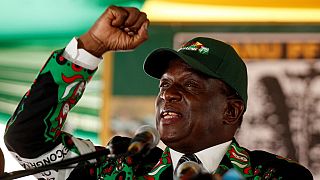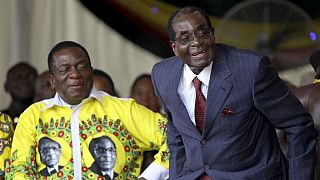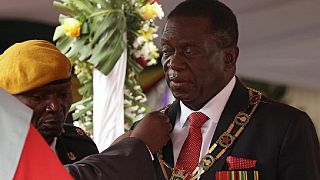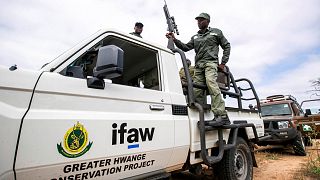Zimbabwe
Zimbabwe’s army has announced the end of the ‘Operation Restore Legacy’, which toppled president Robert Mugabe in November.
Operation Restore Legacy was launched by the Zimbabwe Defence Forces on November 13 with a stated objective of removing criminals around the president.
According to the statement released today by the commander of the Zimbabwe National Army, Lieutenant General Phillip Valerio Sibanda, some of these criminals have been apprehended, while others managed to flee the country.
Since the operation was launched, Robert Mugabe resigned on 20 November, a new president Emmerson Mnangagwa was sworn in on 24 November and the ruling ZANU-PF has held an extraordinary congress to confirm the developments in the ruling party.
The army said it is satisfied with the results of the operation and were handing over all normal day to day policing duties to the Zimbabwe Republic Police.
Sibanda urged the country to now respect the rule of law and shun corruption.
‘‘As we focus on recovering our economy, we must shed misbehaviours and acts of indiscipline which have characterised the past. Acts of corruption must stop forthwith…’‘ read a section of the statement.
The army went ahead to caution that the electoral process leading to next year’s elections including the campaigning and voting should be conducted in ‘an environment of peace and tranquility’.
Reactions from Zimbabweans were mostly positive with many now looking forward to meaningful and credible elections slated for next year.
Good move to take soldiers back to the barracks! An exit strategy was key to success of operation to remove Mugabe. Now its important to get free, fair and credible elections in order to restore full civilian authority in #Zimbabwe https://t.co/Em0D037p3V
— ARNOLD TSUNGA (@tsunga_arnold) December 18, 2017
President Mnangagwa has told the ruling ZANU-PF congress and all Zimbabweans by extension that elections could be held as early as March next year.
Statement issued by the ZDF today on the end of 'Operation Restore Legacy', the military action that toppled Mugabe pic.twitter.com/TIozESfPiB
— Zim Media Review (@ZimMediaReview) December 18, 2017
Elections will be a critical test of the success of the military’s objectives of returning the country to a path of democratisatisation and the rule of law.
The country’s international partners, specifically Britain, have indicated that cooperation with the new Zimbabwe government including lifting of sanctions and financial support will depend on ‘democratic progress’.













02:19
South African actor Embeth Davidtz makes directorial debut with Rhodesia-set drama
01:13
17 soldiers killed as gunmen raid army bases in northern Nigeria
Go to video
Togo suspends French state-owned broadcasters RFI and France 24
Go to video
Protesters gather in Ivory Coast, demand Thiam's return on electoral list
02:13
Cameroon: Police, opposition supporters clash as election looms
01:25
Burundi awaits results of local and parliamentary elections